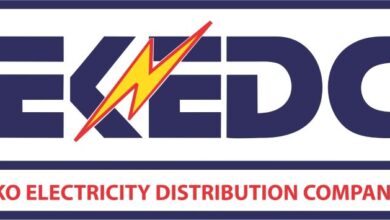Ecobank’s ‘Oja Oge’: A Fashion Fair with big tech ambitions for African SMEs

In an era where fintech is reshaping African commerce, and where fashion, beauty, and lifestyle brands are finding new global runways online, Ecobank Nigeria is signaling that it doesn’t just want to finance SMEs—it wants to amplify them.
At the heart of this ambition is ‘Oja Oge’, a pan-African SME marketplace which returned for its second edition in Lagos last week. But behind the glitz of vibrant fabrics and bustling stalls lies a broader vision: reimagining Africa’s SME economy for a digital, borderless future.
More Than a Marketplace: The Fintech-Enabled SME Revolution
“Oja Oge,” which literally translates to “Trendy Market,” is far from a traditional trade fair. It is Ecobank’s innovation sandbox—a retail-meets-fintech ecosystem, targeting creative entrepreneurs across fashion, beauty, and lifestyle segments, all powered by data-driven support systems and scalable business tools.
Ms. Omoboye Odu, Ecobank’s Head of SME, Partnerships and Collaboration, summed up the bank’s stance:
“When we say we are the SME solution, we mean it—and Oja Oge is a testament to that commitment.”
That commitment, she noted, is not just about event sponsorship. It’s structural, tech-backed, and regionally strategic—leveraging platforms like the Ecobank Trade Hub, webinars, and cross-border payment solutions to position African entrepreneurs for scale across Rwanda, Egypt, Europe, and North America.
Why the SME Bet Still Matters in 2025
According to recent government and NBS data, SMEs contribute over 50% to Nigeria’s GDP and over 90% of employment opportunities. But in a post-pandemic, digitised economy, what SMEs truly need is **access—**to capital, digital tools, mentorship, and global markets.
Ecobank’s approach mirrors a broader shift among forward-thinking African banks: from traditional loan providers to platform enablers—serving up e-commerce integrations, inventory financing, and trade facilitation services to empower micro and small businesses.
This comes at a critical time. With global inflation biting, youth unemployment rising, and currency volatility challenging cross-border trade, only banks that blend finance with digital enablement will remain relevant to Nigeria’s 41.5 million MSMEs.
Building the Shopify of Africa?
While Ecobank isn’t launching an e-commerce platform per se, Oja Oge has the trappings of a financially integrated merchant ecosystem—free exhibition space, embedded financial education, and seamless trade facilitation.
This is no small feat in an economy where informal retail dominates and where access to financial tools remains a primary growth barrier for many female-led and youth-driven businesses.
By showcasing both new and established brands under one roof, Ecobank is experimenting with a hub-and-spoke SME model, where regional banks serve as tech-enabled hubs, connecting thousands of vendors (the spokes) to a unified African market.
Beyond Fashion: A Model for Sector-Specific SME Clusters
What’s especially interesting is how Ecobank is using a sector-focused approach to SME growth. While fintechs often take a broad, transactional approach to MSME support, Ecobank is honing in on specific high-potential industries—fashion, lifestyle, beauty—that resonate with Nigeria’s youth, and already show traction in global markets.
Could we see future editions of Oja Oge focused on agri-tech, creative arts, or digital services? It’s a likely possibility, given the evolution of the bank’s pan-African strategy.
Final Word: Retail Banking is Becoming Retail Tech
By reaffirming its SME agenda through Oja Oge, Ecobank is redefining what banking means in 2025. It’s no longer just about credit facilities or POS machines. It’s about creating networks, narratives, and platforms that position African entrepreneurs for success in an increasingly connected world.
From Asoké weavers in Abeokuta to Ankara stylists in Abuja, Ecobank’s message is clear: The runway is global. And the future of African retail is bankable.











